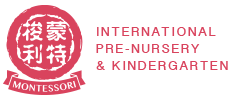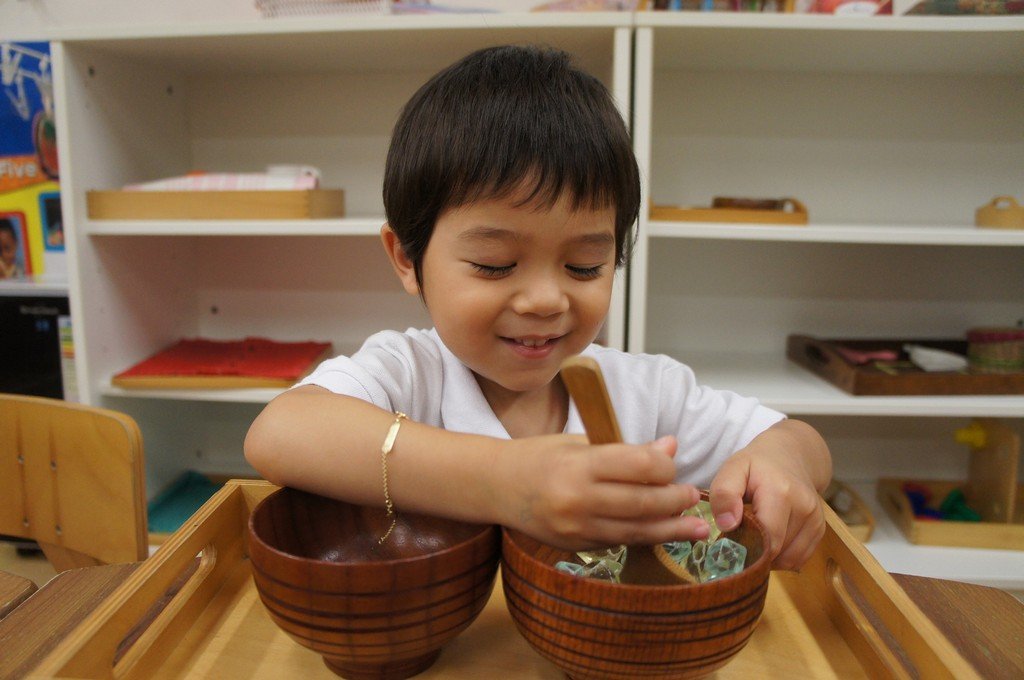We assist the child’s optimum development by following these principles:
In the Pre-Casa environment, Practical Life activities offer the child a wide range of materials which require sequential or step-by-step movements, hand and finger grip, hand-eye coordination, and dexterity. This type of work gradually isolates the three fingers used in the pincer grip when grasping, twisting, rolling, buttoning, closing and releasing which will eventually lead children to refine their pencil grip when they are ready.
Children are also offered numerous opportunities to purposefully move around the room and explore. During work time, their gross motor skills are strengthened and developed through carrying and balancing the contents in the tray, or moving slightly over-sized objects from the shelf to the work space and back. All these activities offer intrinsic motivation to work repeatedly with materials and build the sense of accomplishment that encourages longer periods of concentration and attentiveness.
Through Montessori work, the child gains skills, confidence, and an “I can do it” attitude. In the classroom, we support the child’s path to independence with three key principles:
Independence is the ability to do things for ourselves. Children become independent through purposeful and meaningful work. By working on simple daily activities, they begin to understand routines, their own abilities, and their place at school and at home. We offer choices at the right times and lend a hand only when help is needed. When we slow down to match the children’s pace, allowing plenty of time for them to practice their skills, their path to independence is supported. In time, they gain the ability and confidence to do things independently.




